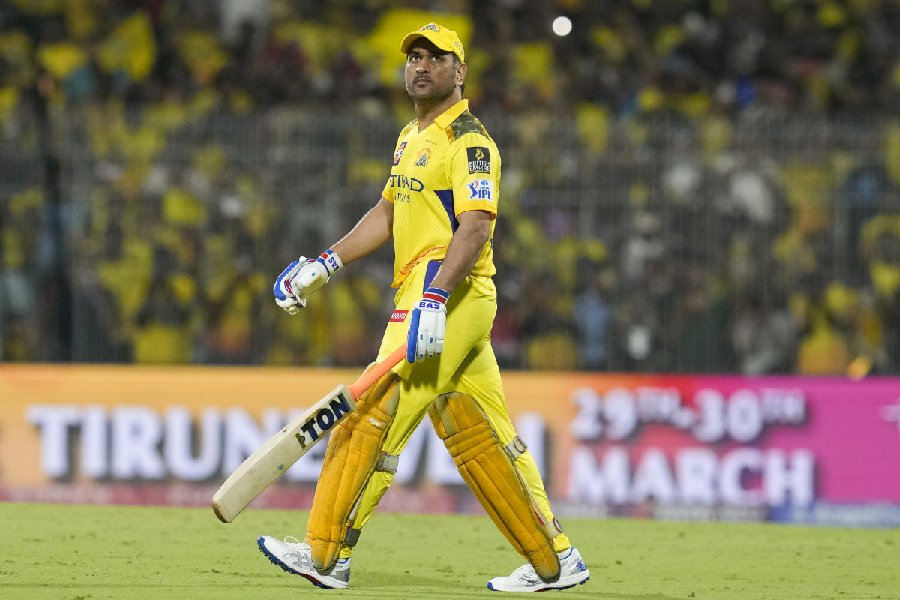 |
| Actors Kapil Bora and Zerifa Wahid at the premiere of their film Dwaar: The Voyage Out on Thursday. (PTI) |
Jan. 3: Charting the psychological breakdown of a young academic and writer, Assamese feature film Dwaar: The Voyage Out premiered at Anuradha cinema today.
The film is based on writer Apurba Sharma’s short story, Bahiroloi Jowa Baat (The Way Out), and will be released across the state tomorrow. It is the first Assamese movie released this year.
Some of those who enjoyed it today termed it as “well-directed but a complex one”.
The story is set in the backdrop of the Assam Movement and its aftermath: the protagonist’s convictions, a failing Communist ideology and the painful reality of having to compromise his vision of an innocent world. Unable to come to terms with the persistent chaos and turmoil that afflicts society, the protagonist, Dwijen, descends into a neurotic struggle to escape his agony.
Dwijen attempts to write a novel on love but nostalgia creeps into his present, posing a severe threat to his marital life and intimacy with his wife, Manosi. Succumbing to hallucinations and bouts of severe depression, Dwijen attempts to get away from everybody, alienates himself from his academic and personal responsibilities. His once village childhood sweetheart, who was raped and killed, continuously beckons him even as he flounders and falls in his journey backwards.
The film uses the flashback mode to suggest the unrecoverable past that criss-crosses Dwijen’s haunting anxiety and crisis. The entrapment, manifested by the ills of consumerism, and the insensitive mentality of a society steeped in violence and intolerance push Dwijen further into isolation and frustration, leading to his suicide.
Besides Kapil Bora, who is playing the lead role, other cast members include Zerifa Wahid, Tanvi Sharma, Mintu Baruah, Bulganin Baruah and Srijani Bhaswa Mahanta.
Director Bidyut Chakarvarty said he had the story with him for more than a decade and was happy that Sanjive Narain has come forward to produce the film. Narain said making cinema was a social responsibility for him and he would produce more Assamese movies without much care for its revenue generation aspect. “One more Assamese film from our production will hit the screens in April. In February, we will announce the production of another film,” he said.
“It is a complex and multi-layered story and very difficult to visualise. The director has taken liberty for the film adaptation, doing it very competently and I am satisfied with it,” said Apurba Sharma.
Kapil Bora said he had read several books on psychology to get to know how a person heading towards a breakdown would behave. Zerifa hoped that people would like the film.
Veteran actor Nipon Gosw-ami praised the direction, photography and acting, but termed the film as a “complex one” and “may not be for all”. Director Pullok Gogoi said the film is an example how a person can be affected by his past.










